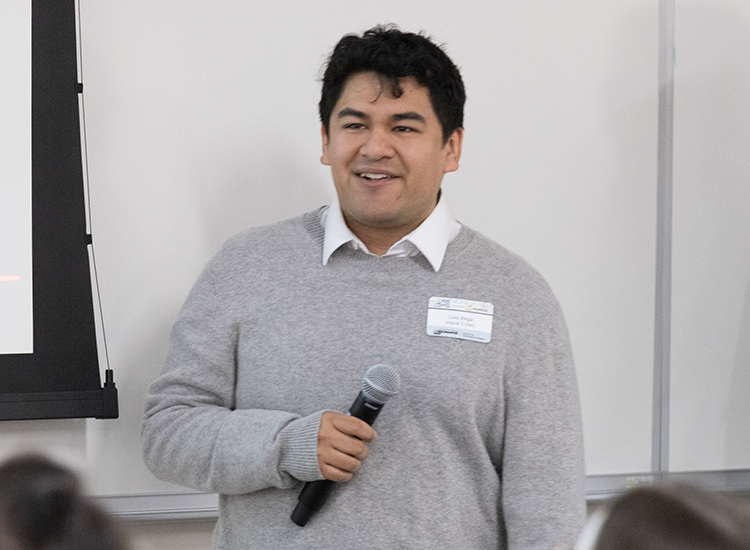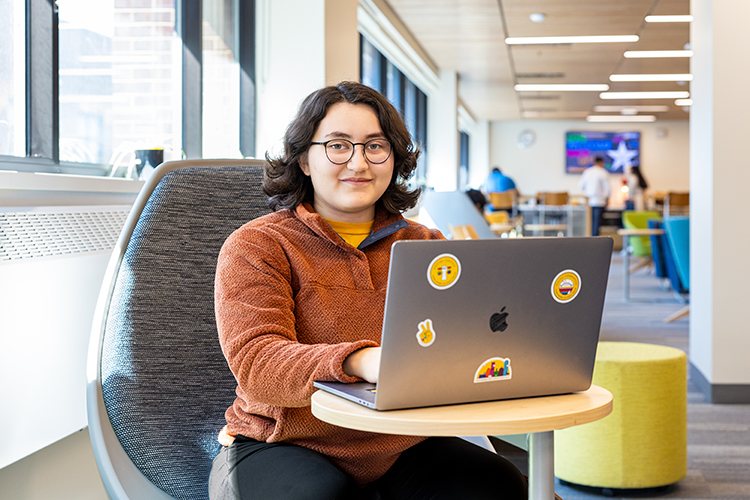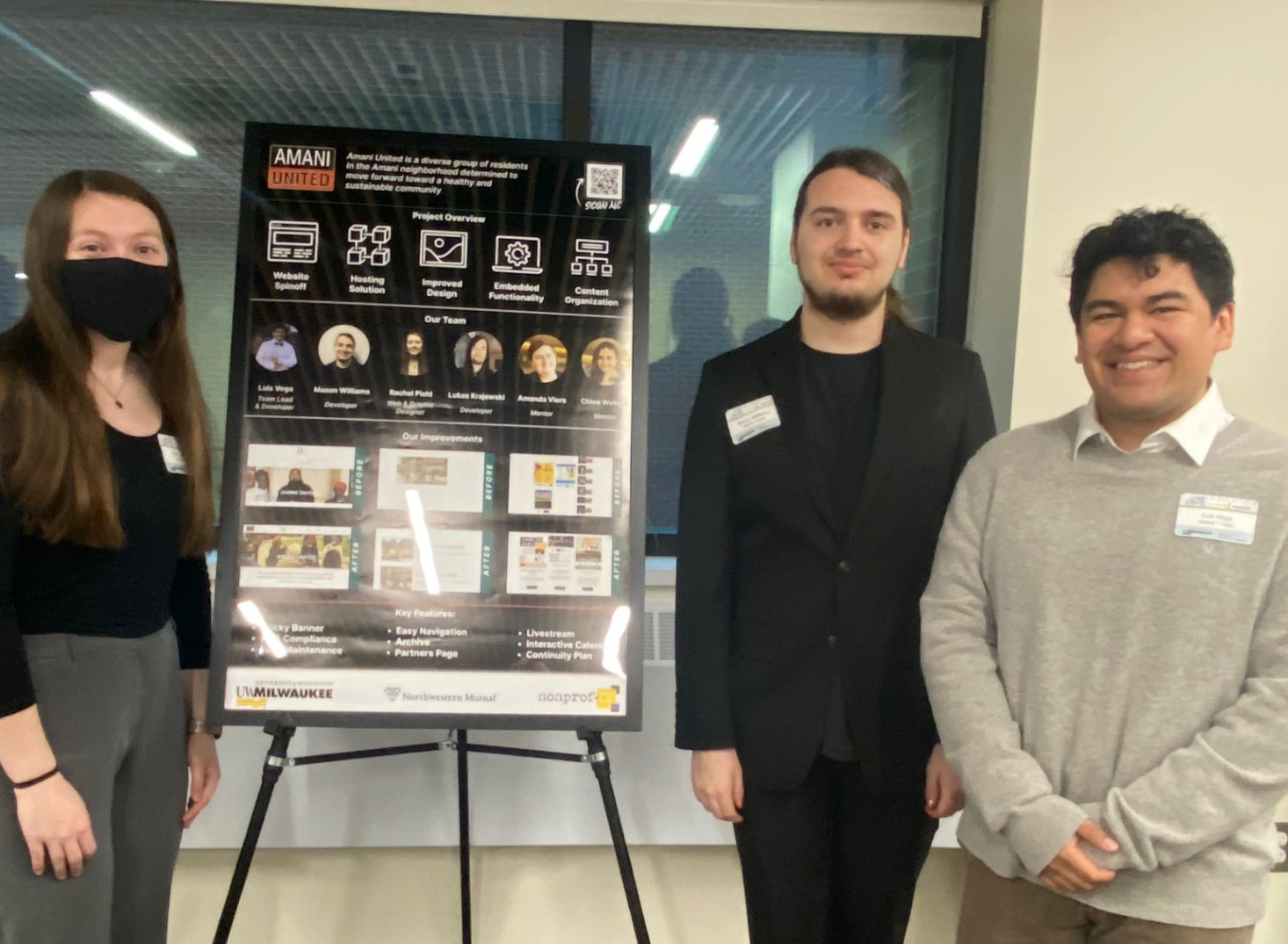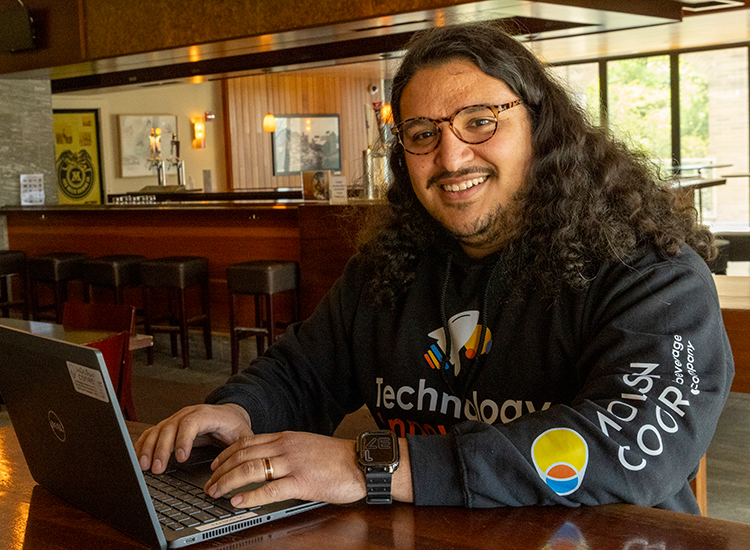Luis Vega always loved working with computers when he was growing up, so he gravitated to computer science when he came to UWM.
However, he found the courses he was taking were more focused on theory while he was more interested in practical applications of the technology.
That’s why he transferred to the School of Information Studies’ BSIST (Bachelor of Science in Information Science Technology) program in the spring of 2022.
When he graduates this May, he will join 2,315 other students who’ve earned their degrees through the program over the past 25 years. The program currently has 525 students.
“Numerous co-workers that I currently have also went through the IST program,” she said. ‘It has built my network at my internal company, but also across other companies. A lot of the skills I learned came from the program.”
Katie Hartman, a 2021 alumna who now works at Kohler Corporation as an associate business analyst, credits the program with preparing her for the workforce.
“Numerous co-workers that I currently have also went through the IST program,” she said. ‘It has built my network at my internal company, but also across other companies. A lot of the skills I learned came from the program.”
The BSIST major combines core IT skills like front-end web design, programming and project management with electives to prepare students for careers in the IT industry, according to retiring Senior Associate Dean and Professor Dietmar Wolfram, who helped co-found the program 25 years ago.
Over the years, the program has attracted a diverse group of students, said Chad Zahrt, Assistant Dean for student affairs in the School of Information Studies. While the IT field has often been seen as a largely white male area, the BSIST program has attracted students from a variety of racial and ethnic backgrounds in addition to more women than traditional computer science, he added.
Vega appreciated the fact that it was easy to transfer his credits into the program, he said.
“I actually jumped around a lot in majors, but was able to transfer the credits into BSIST,” he said.

Being able to take many of his classes online was also a benefit, he added. “Right now, I’m taking six classes so if I didn’t have the online portion, it would definitely be a little bit difficult.” Like others in the program, he took part in IT conferences and events like CypherCon and Summerfest Tech. It would be great if the program could offer even more of those networking opportunities, he added.
Many of the students and alumni interviewed mentioned the value of the hands-on experience in the BSIST program.
Lauren Rodriguez, a senior who will graduate in May 2025, said she liked that the program was a combination of client communications, as well as IT network, website building and social media management.

She especially enjoyed her experiences in the nonprof-IT program, which pairs students with nonprofit organizations to provide IT solution
The organizations save money, and the students gain real-world experience. “It’s a combination of client communication as well as back-end work,” Rodriguez said. “It’s great to have experience before you graduate and have to find a job.”

Vega was team lead on a web project for Amani United during the spring 2024 semester. The organization had a web presence, but it was just a page on a parent organization’s website so the team worked to expand that.
“Having that experience a semester away from graduating is awesome,” he said. Right now, he’s focused on finishing up and crossing the stage on commencement day, but he would like to eventually work in the healthcare industry.
Justin Mendez, who graduated from the school in December 2018, has returned as a mentor for students in the nonprof-IT program. He and a colleague introduced the groups presenting at the Tuesday, May 8, showcase. This will be his second year participating and working with the school. He gains fulfillment, he said, each semester through inspiring young professionals, all while solving technology challenges for deserving local nonprofit organizations.

Mendez is a product manager on the Technology Innovation Team at Molson Coors Beverage Company. His team’s mission is to accelerate organizational capabilities through the adoption of emerging technologies. He also emphasized the importance of being active in the local community, such as giving back to UW-Milwaukee and sharing the company culture and values to attract new talent to Molson Coors. In some situations, these community interactions have led to new ideas which turned into funded projects, he said
“This is an up-and-coming generation with a different view of the world and technologies,” he said.
